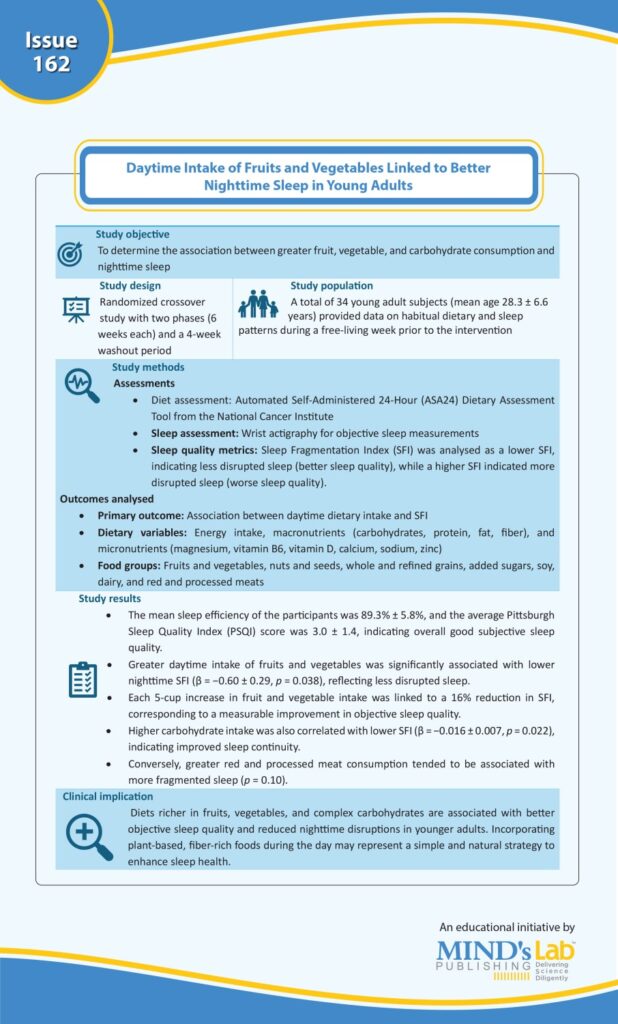
Sleep and diet are determinants of cardiometabolic health and hold immense public health relevance as modifiable lifestyle factors. Studies have shown that insufficient sleep often leads to unhealthy dietary patterns, resulting in higher energy, fat, and sugar consumption. Little is known about habitual dietary intake and its impact on sleep quality.
Epidemiological studies have shown that individuals adhering to healthy dietary patterns, such as the Mediterranean diet, tend to report better subjective sleep outcomes, including improved sleep quality and fewer sleep disturbances. Despite these findings, most existing data rely on self-reported sleep measures and do not clarify how the real-world dietary behaviors influence objectively measured sleep under free-living conditions.
A study conducted at the Columbia University Irving Medical Centeraimed to address this gap by examining the effects of daytime dietary intake on nighttime sleep quality among younger adults. Using wrist actigraphy and detailed 24-hour dietary records, researchers found that greater daytime consumption of fruits, vegetables, and complex carbohydrates was associated with significantly lower nighttime sleep fragmentation. A five-cup increase in fruit and vegetable intake corresponded to approximately 16% better sleep quality, suggesting that plant-based, nutrient-rich diets may directly contribute to more consolidated and restorative sleep in the younger adults (see Graphic).

(Source: Boege HL, Wilson KD, Kilkus JM, Qiu W, Cheng B, Wroblewski KE, Tucker B, Tasali E, St-Onge MP. Higher daytime intake of fruits and vegetables predicts less disrupted nighttime sleep in younger adults. Sleep Health. 2025;11(5):590-96.)
